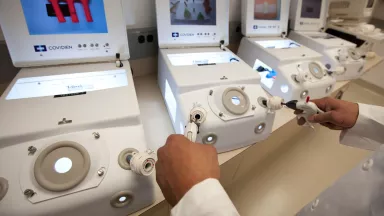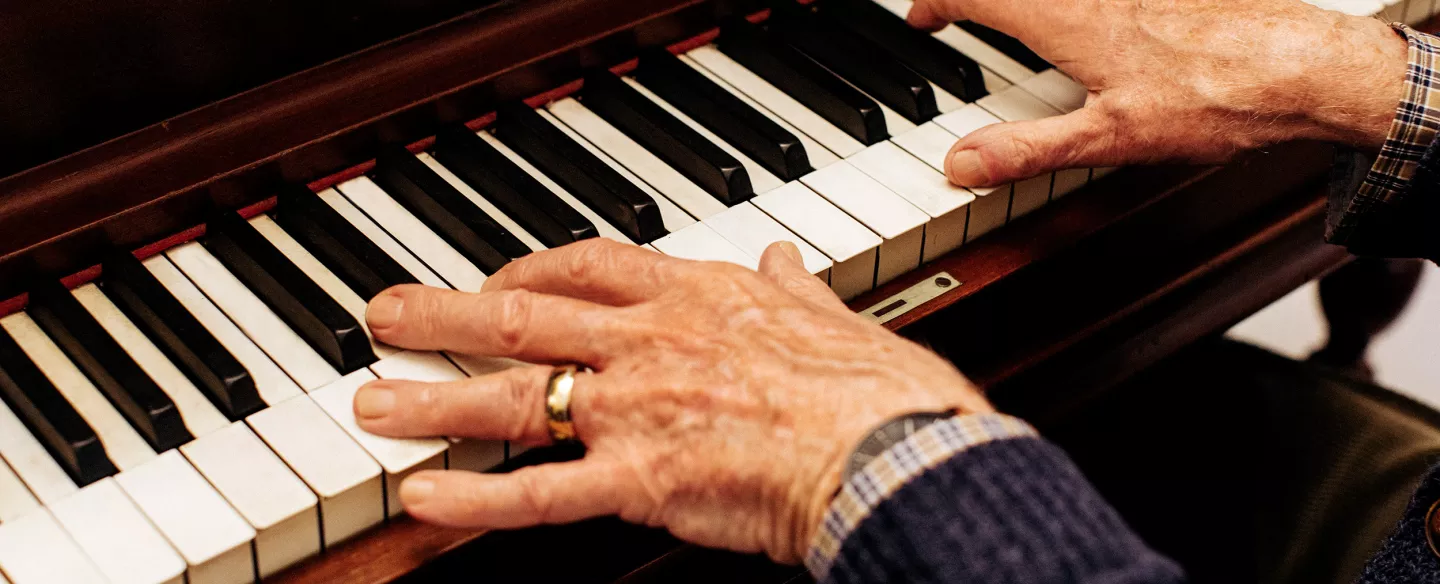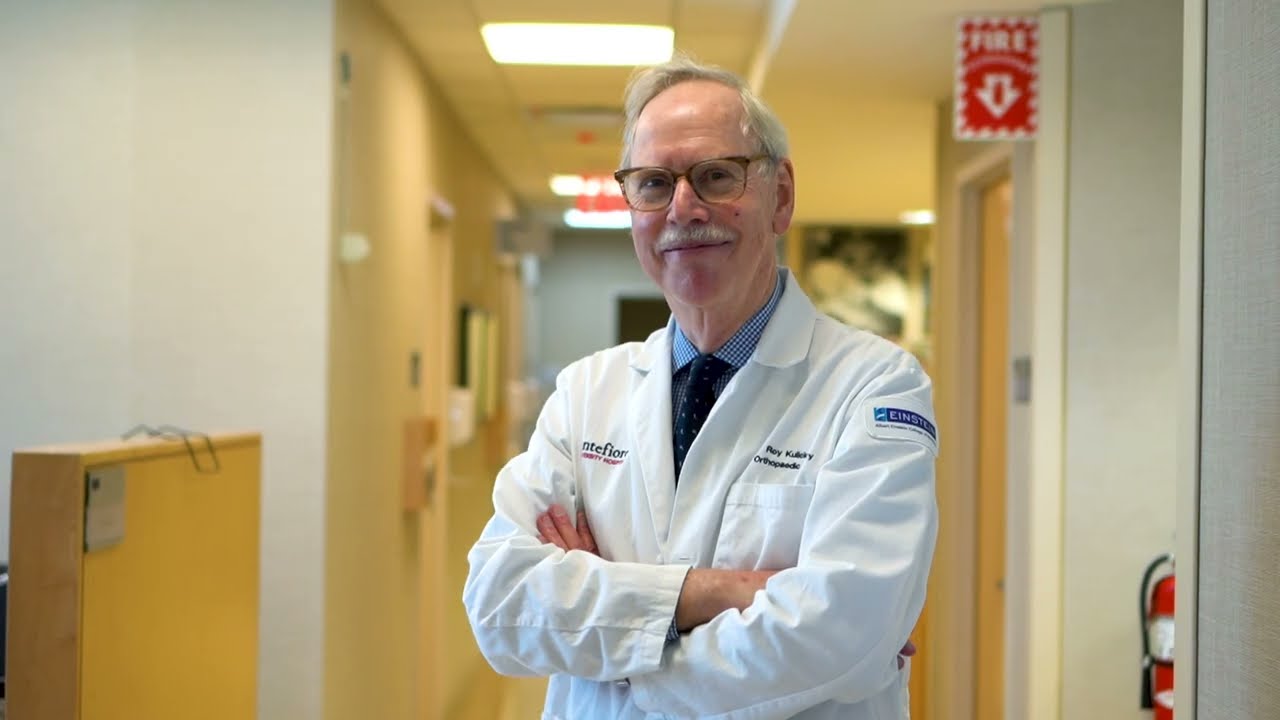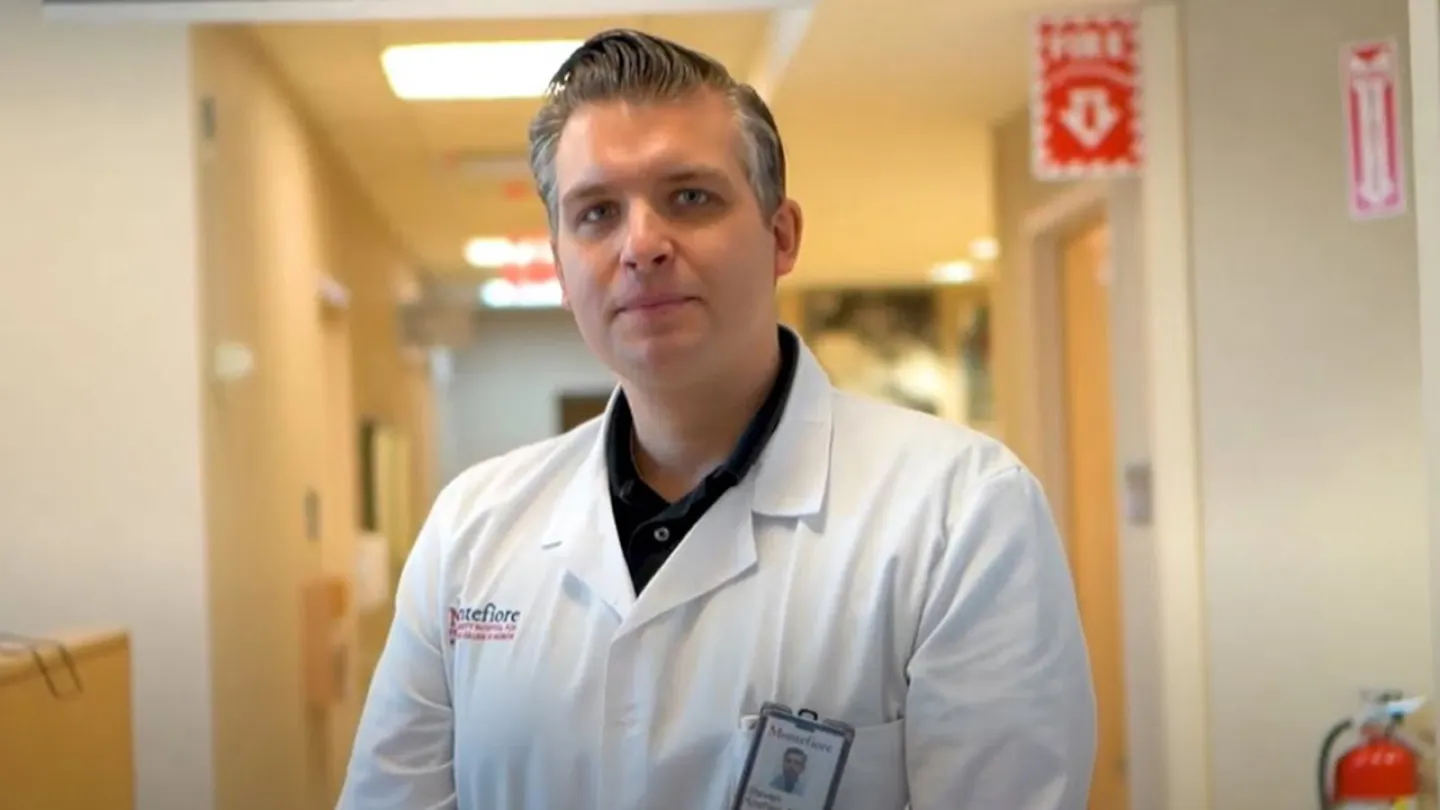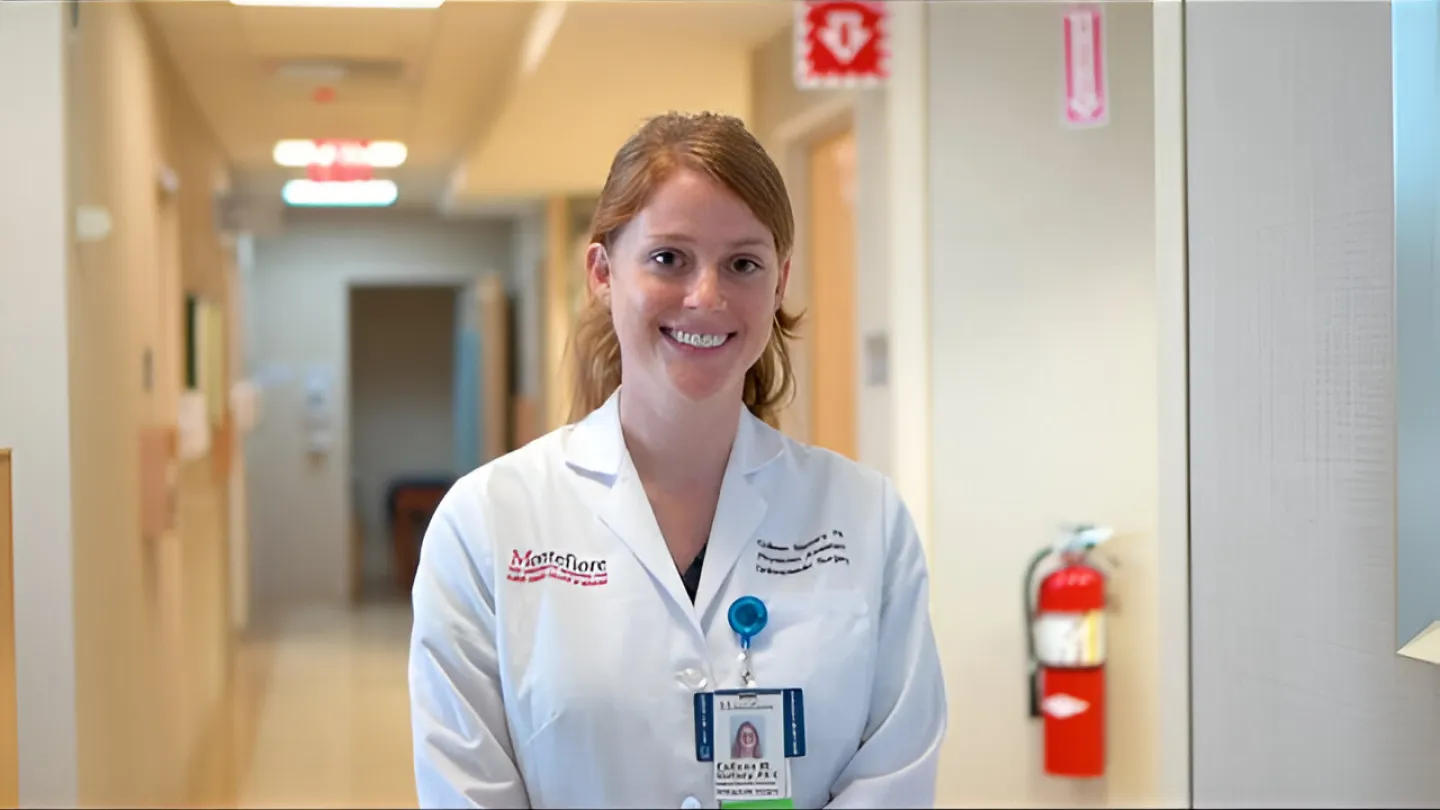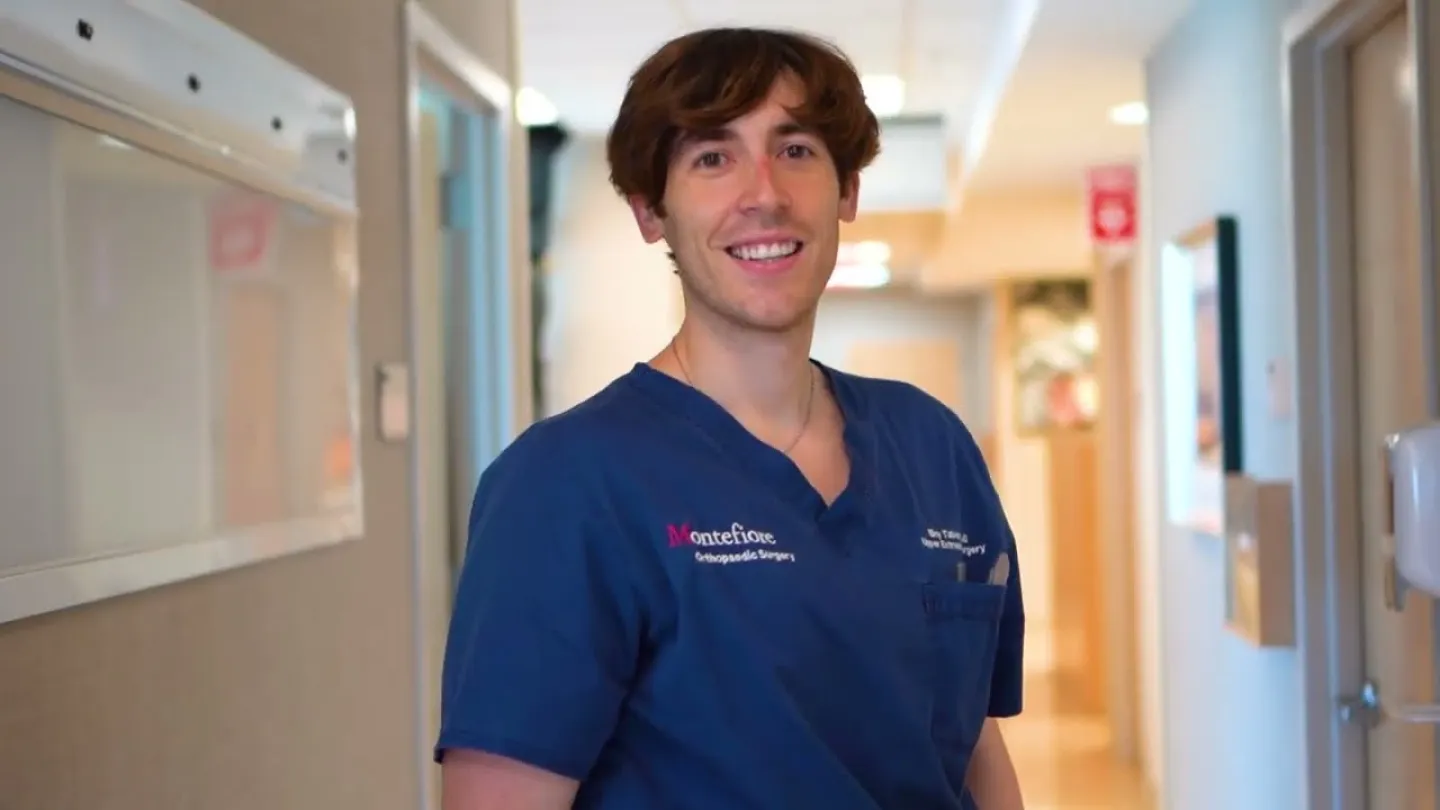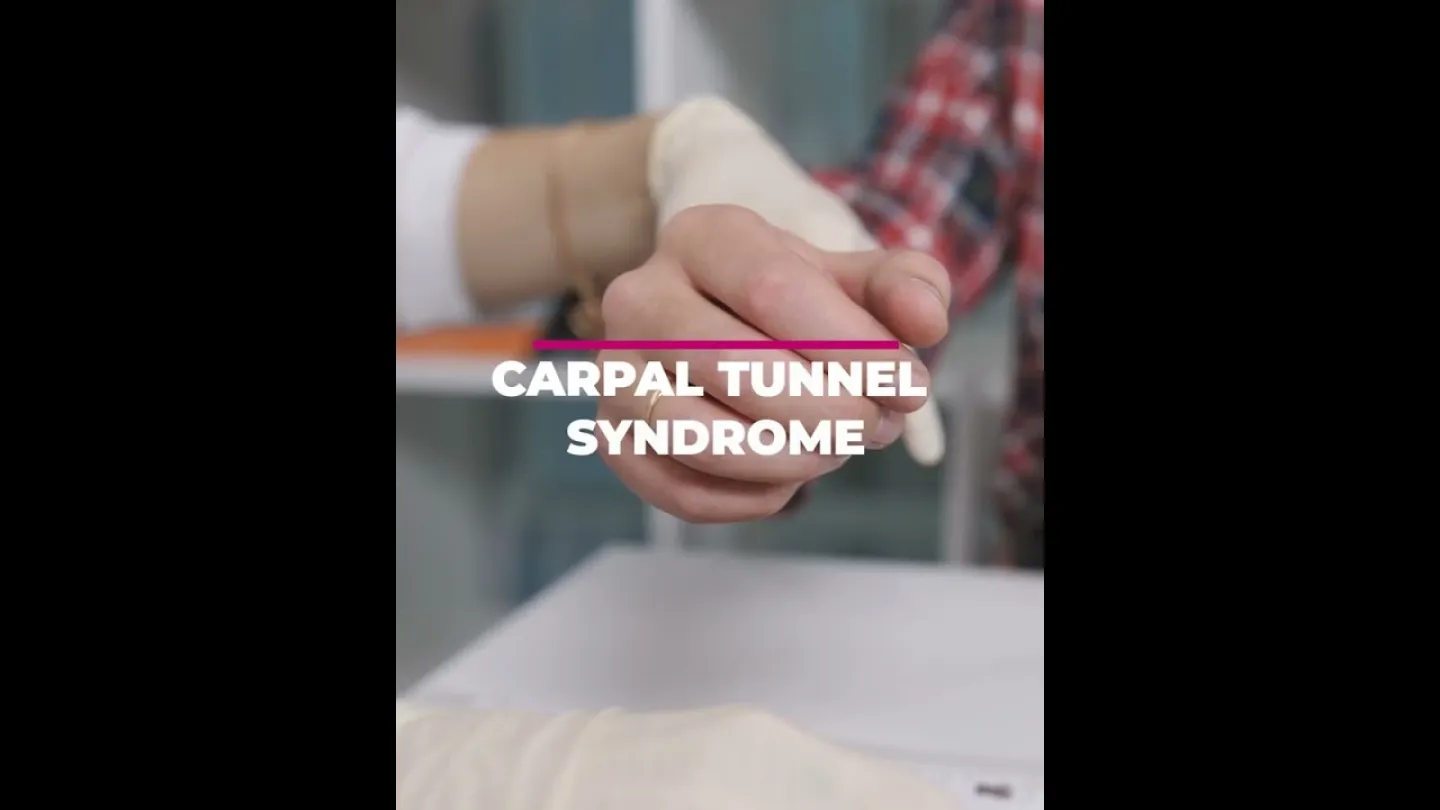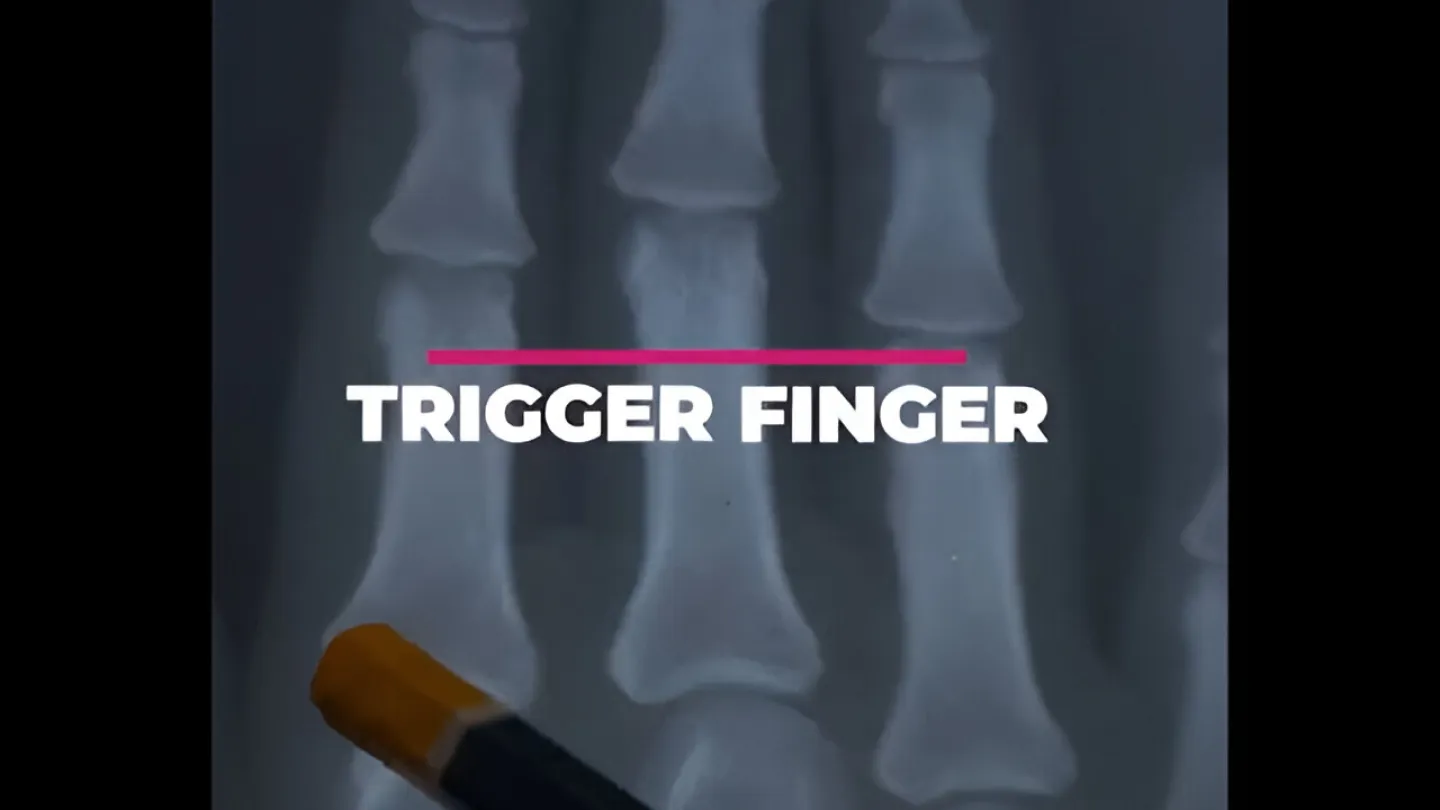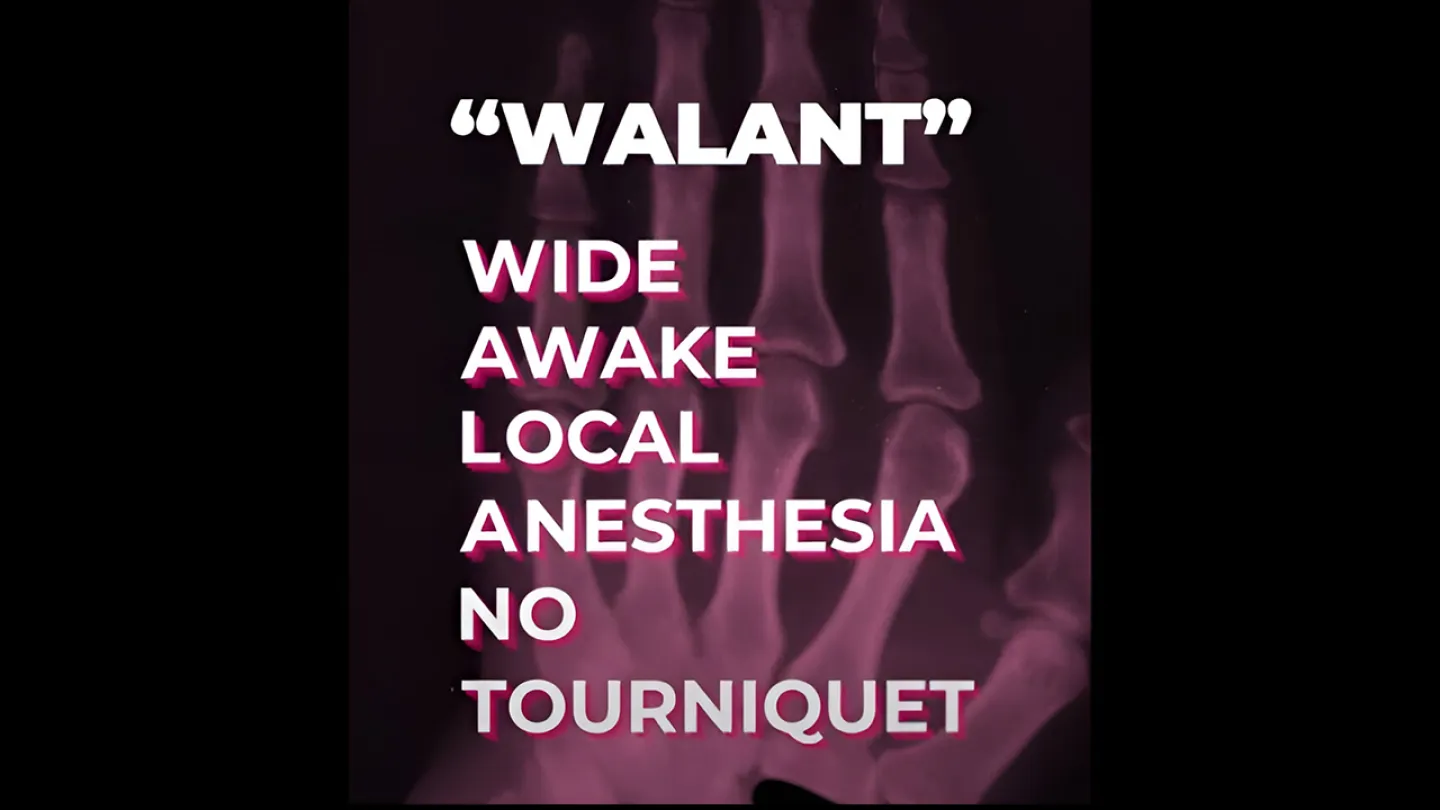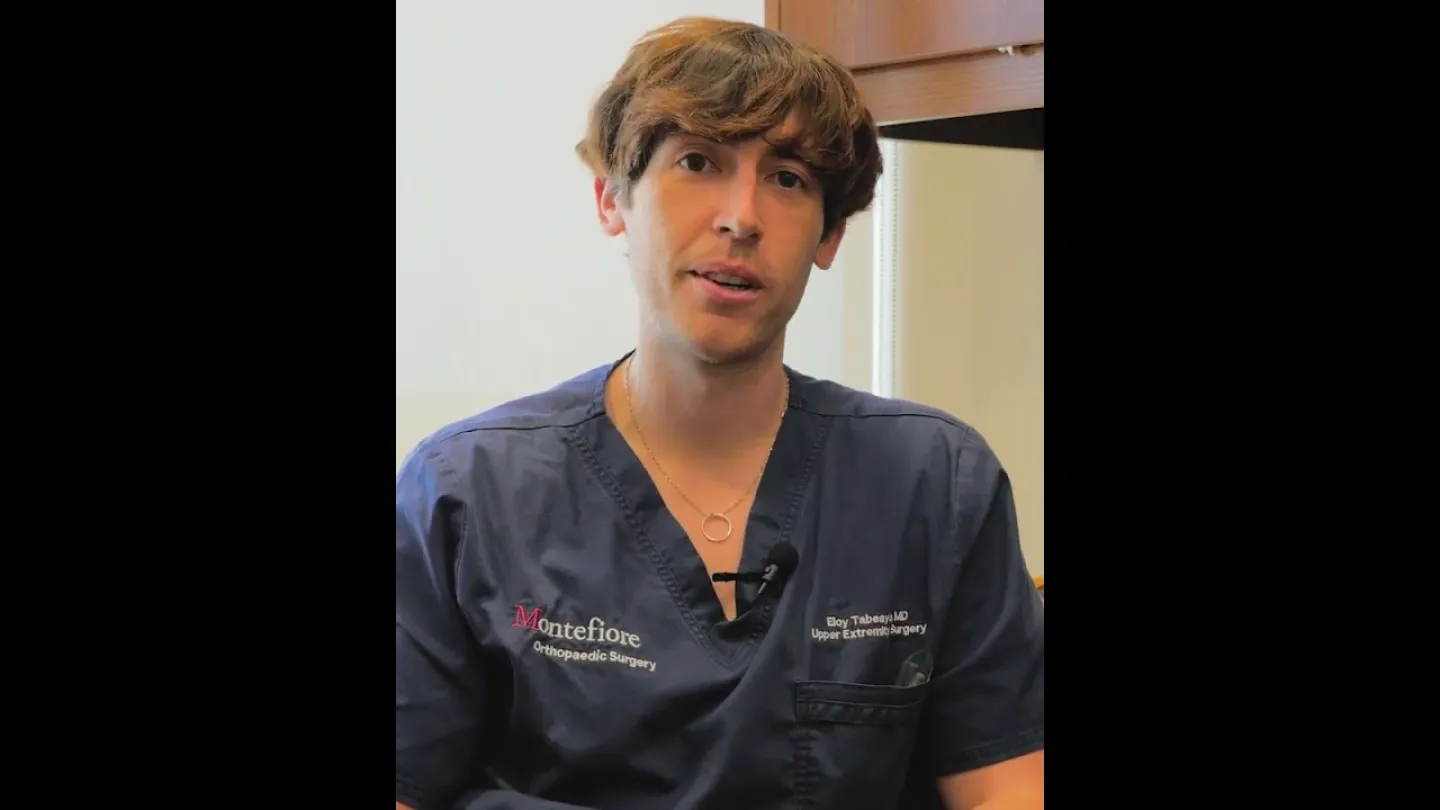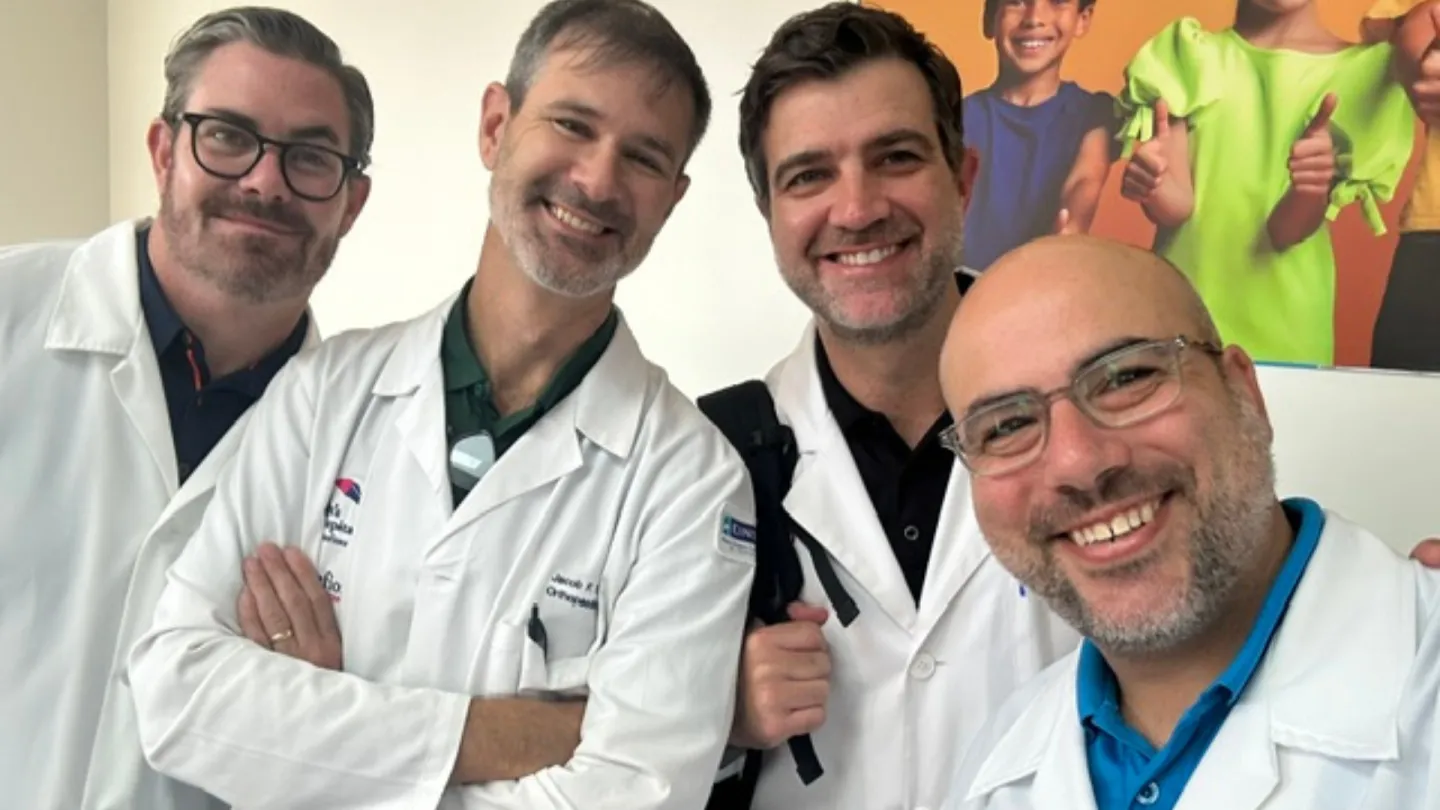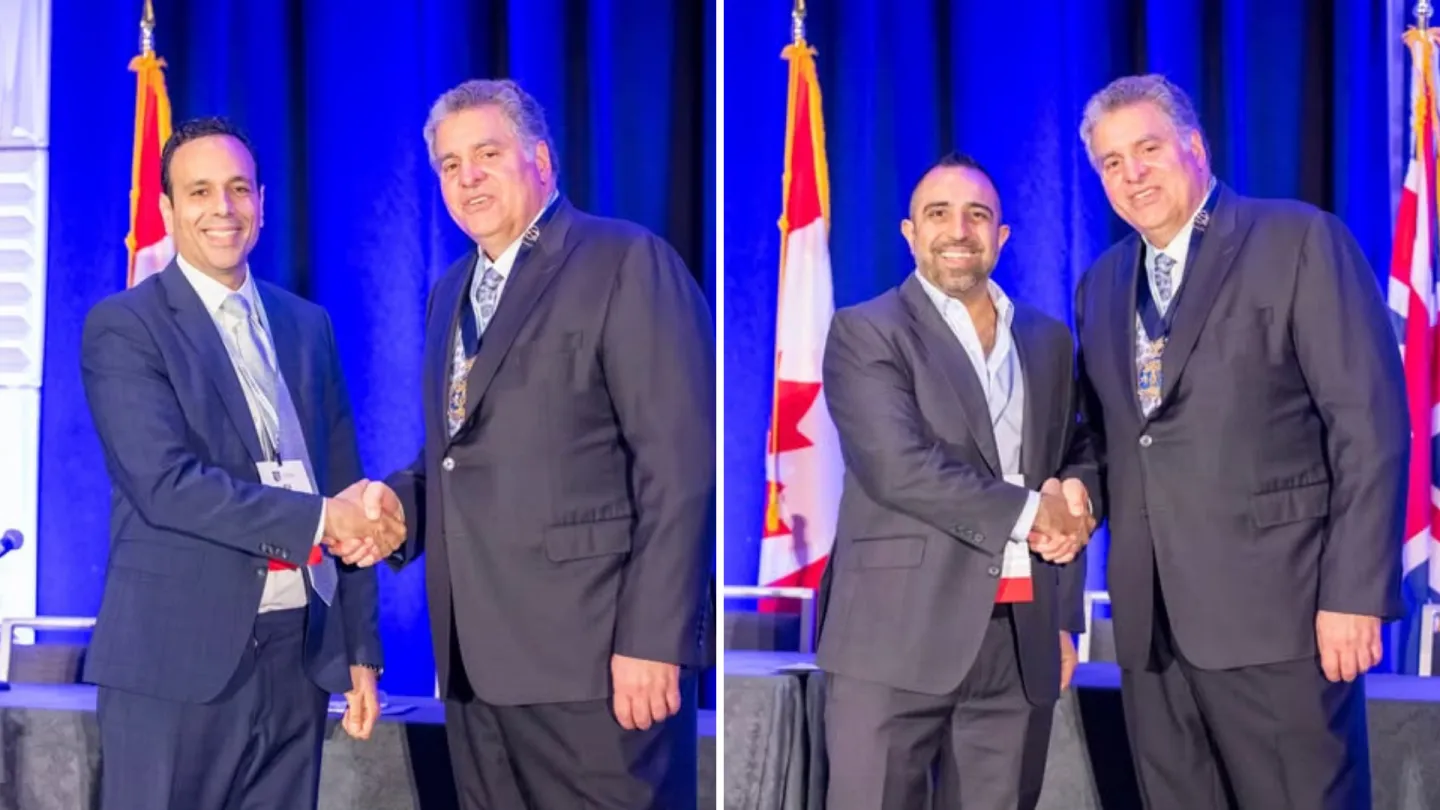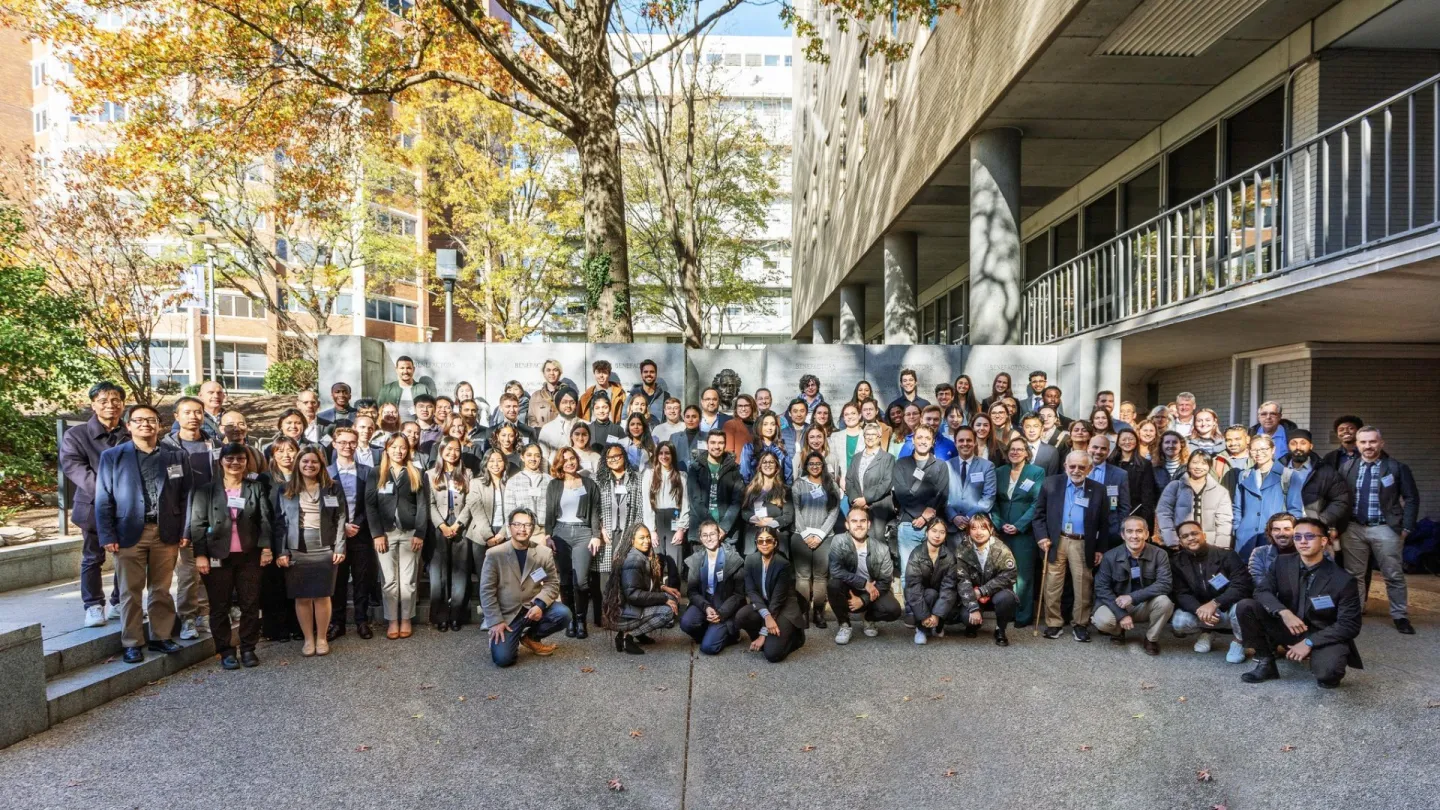Innovative Treatments & Expert Care

Montefiore Einstein Hand and Upper Extremity Surgery brings together a tremendous breadth of knowledge and expertise for the diagnosis and management of a wide range of hand and upper extremity conditions. We are constantly striving to develop novel and leading-edge techniques for the advancement of care within our own health system and beyond. We’re ranked in the top 1% of all hospitals in the nation for Orthopedics according to U.S. News & World Report.
The hands and upper extremities are sites of frequent injury, which can result in chronic pain, loss of function and time away from work. These areas are also commonly impacted by nontraumatic conditions like carpal tunnel syndrome, ganglion cysts, tendinitis and arthritis. At Montefiore Einstein, we believe that optimal outcomes are achieved through thorough evaluations, accurate diagnoses and intelligent, patient-specific treatment plans.
The experience of our patients and their loved ones—not simply their ailments—demands our full attention. Your dedicated care team will be there to discuss your condition, answer questions, assess treatment options and develop a treatment strategy that is best for you.
Regardless of ailment or condition, our service offers robust technical and surgical experience and a variety of diagnostic and therapeutic options. Our mission is to provide patients with empathetic care while minimizing discomfort, improving function and enhancing quality of life.
Our status as an academic health system puts us at the forefront of our field. Together with our Albert Einstein College of Medicine, one of the highest NIH-funded institutions in the country, we are continually conducting research with the goal of discovering better treatment options for our patients. We routinely present our research findings and publish our study results in peer-reviewed publications.
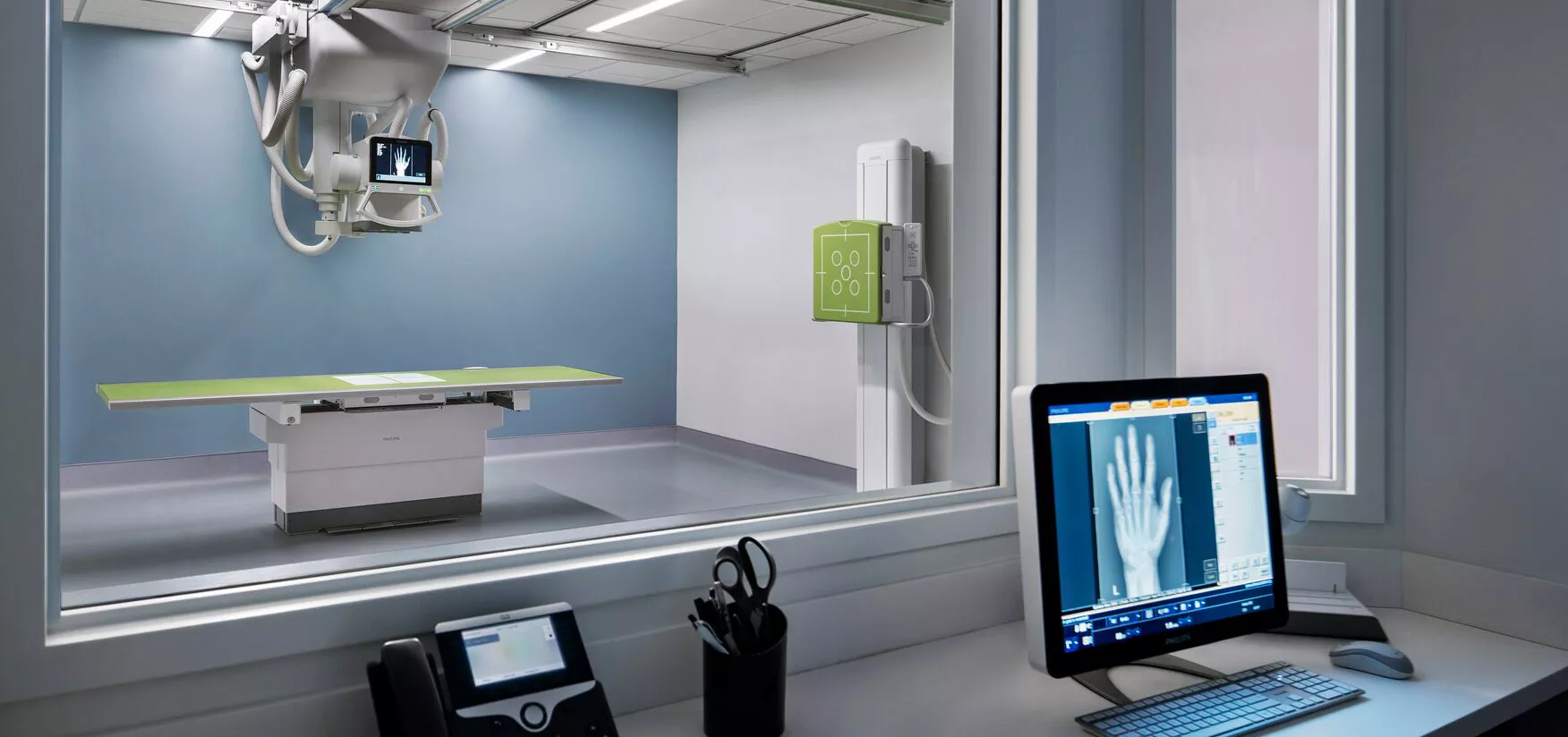
Conditions We Treat
Montefiore Einstein treats a wide spectrum of orthopedic conditions, a selection of which you will find here. In addition to these, we have experience treating many other related conditions. Please contact us to schedule a consultation to review and discuss your specific healthcare needs.
Arm injuries
Carpal tunnel syndrome
Congenital hand defects and other pediatric conditions
De Quervain’s tenosynovitis
Dupuytren’s disease
Finger, hand and wrist injuries
Finger, hand and wrist problems
Fractures
Ganglion cysts
Mucous cyst ganglions
Pinched nerve at the elbow
Rheumatoid arthritis
Scaphoid fractures
Tendinitis
Tennis elbow

Advanced Hand & Upper Extremity Treatments
The majority of conditions affecting the hand and upper extremities can be treated with nonsurgical interventions using rest, ice, splinting or physical therapy. In some instances, however, surgery represents the most effective solution. When surgery is needed, we always consider the most conservative approach appropriate. Some of the common procedures we perform include:
Carpal tunnel syndrome is a common condition that results from a compression of a major nerve at the base of the hand. Patients typically report numbness and pain, with symptoms often waking them up at night. Patients are typically treated with nocturnal bracing and anti-inflammatories, but for those who do not improve, surgical decompression of the nerve can be beneficial.
The surgery entails decompressing the nerve, either through a small incision in the palm or via endoscopic surgery. Surgery is performed under local anesthesia with minimal to no sedation. The tissue compressing the nerve is released, and the nerve is thereby freed from any adhesions.
Patients are discharged the same day of surgery and can begin moving their fingers right away. Most patients can return to their normal activities within two weeks.
Dupuytren’s contracture is a disorder of the palmar fascia, the tissue under the skin of the palm. In these cases, the fascia becomes nodular and thickened, which can cause contractions of the fingers. Dupuytren’s contracture is a hereditary disorder, though the severity of contracture may vary from one family to another. Mild contractures may be observed, but for more significant contractures, removing the diseased tissue can improve hand function.
Surgery is typically performed under regional anesthetic. An incision is made in the palm and affected fingers. The contracted fascia is then removed.
Patients are discharged the same day of surgery. Hand therapy is often prescribed postoperatively to help patients regain their motion.
A ganglion cyst is a benign outpouching of fluid that is typically seen at the wrist joint. These cysts can grow and shrink with time. Some cysts can be treated by aspiration in the office setting. For recurring cysts, however, surgical excision can be performed.
Ganglion cysts are typically removed through a small incision in the skin. After tendons and neurovascular structures have been moved aside, the cyst is dissected and removed.
Surgery is performed at our ambulatory center. Patients are typically discharged in a splint. Range of motion exercises are usually initiated at the first postoperative visit.
Distal radius fractures, also known as broken wrists, are common injuries seen after a fall or contusion to the wrist. The distal radius is the largest bone in the wrist and can break if the force is great enough, causing the patient to experience pain and swelling. Some distal radius fractures can be treated with immobilization in a cast. If the fracture is displaced or involves the joint surface, however, the fracture may benefit from surgical fixation.
Surgery is typically performed under a regional anesthetic, which renders the arm numb but eliminates the need for general anesthesia. One or more incisions are made at the wrist, and the broken pieces of the distal radius are placed in the correct position. The pieces are then held together using metal plates and screws. Occasionally, bone grafting is required.
This surgery is performed at our ambulatory center. Patients are typically discharged the same day of surgery and usually begin range-of-motion exercises and hand therapy shortly after surgery.
Trigger finger is a condition that can affect the fingers and thumbs. Patients typically report pain involving motion of the finger. It is not uncommon for the patient to report stiffness, locking or triggering of the finger as it flexes and extends. This is caused by inflammation of the tendon that flexes the finger. Patients are initially treated with a mild steroid anti-inflammatory injection, but for those who do not improve, a small surgical procedure is recommended.
The surgery consists of decompressing the tendon through a small incision in the palm. Surgery is performed under local anesthesia with minimal to no sedation. The inflammatory tissue is then removed from the tendon.
Patients are discharged the same day of surgery and can begin moving their fingers right away. Most patients can return to their normal activities within two weeks.
Your Team of World-Renowned Specialists
Featured Videos
Orthopedic Surgery Highlights
Physician Referrals
Montefiore Einstein embraces a collaborative approach.
If you have a patient who could benefit from our services, please reach out.
718-920-2060
Schedule a Visit
Have a general question or concern?
We’re available to help you by phone or email.
• 718-920-2060 • orthofeedback@montefiore.org




